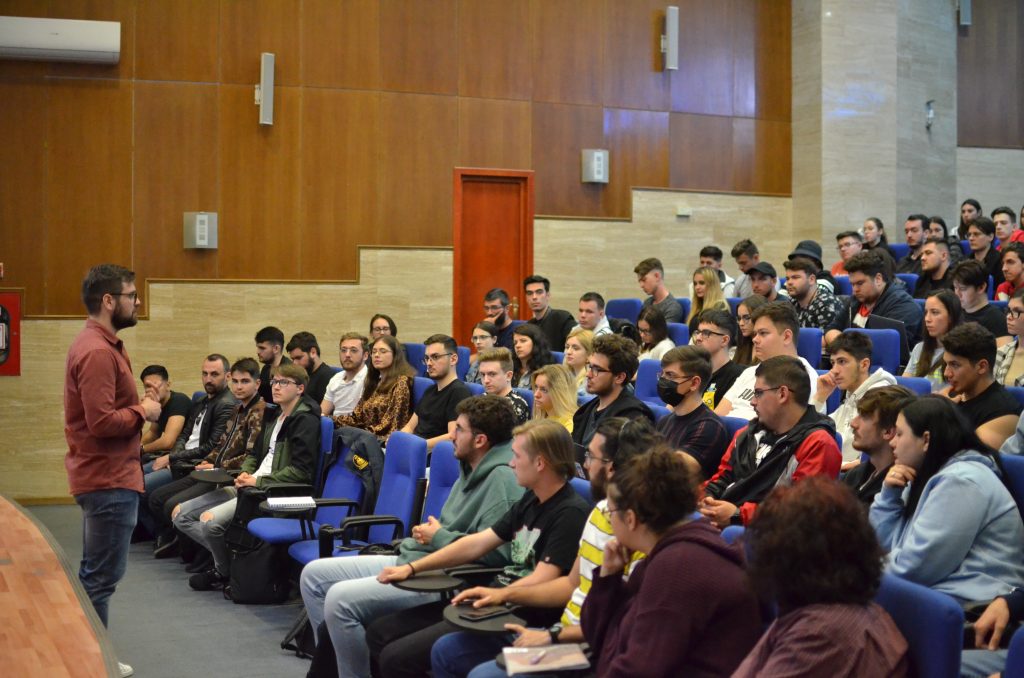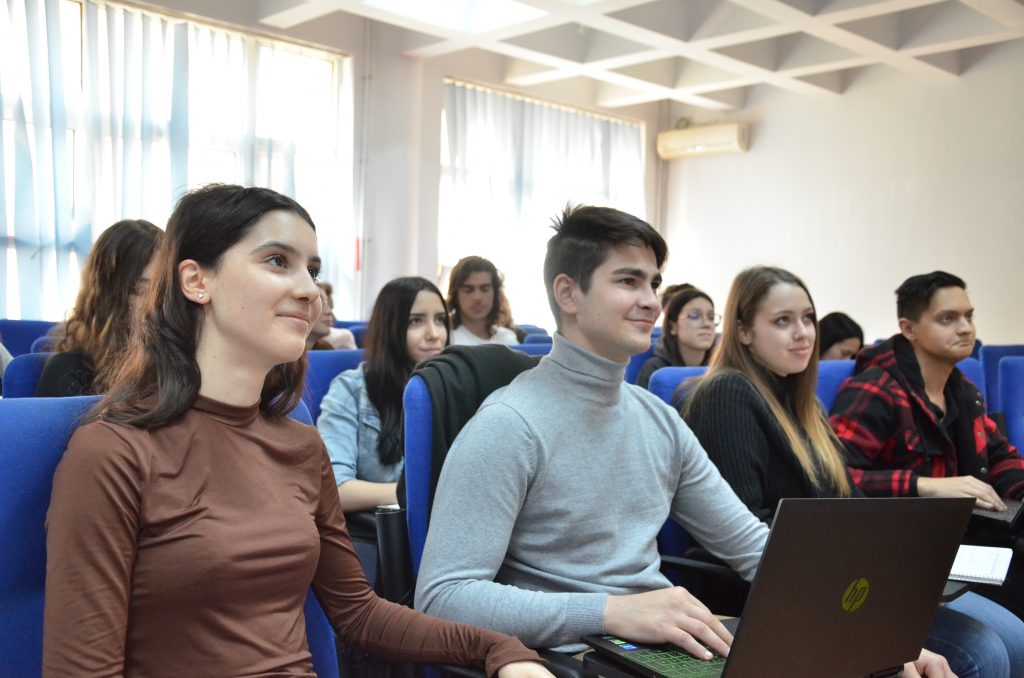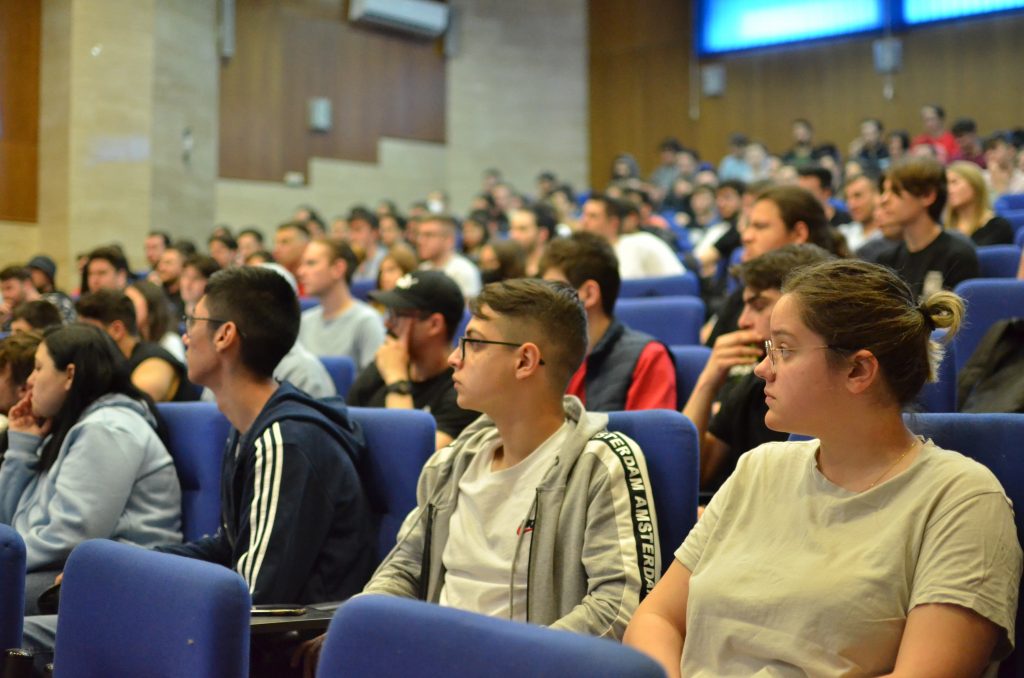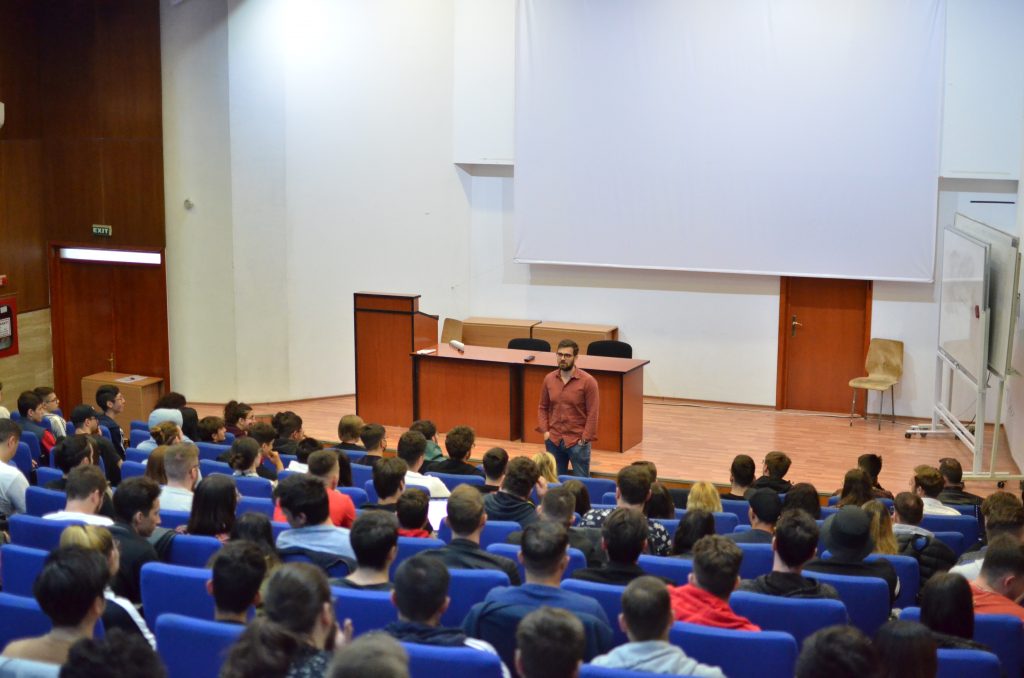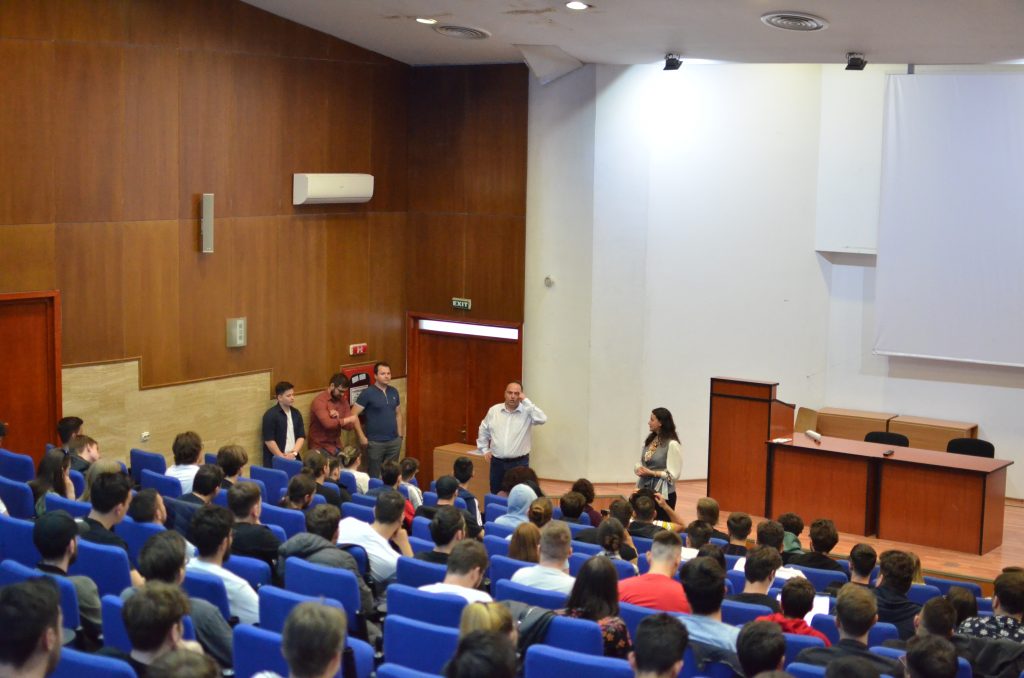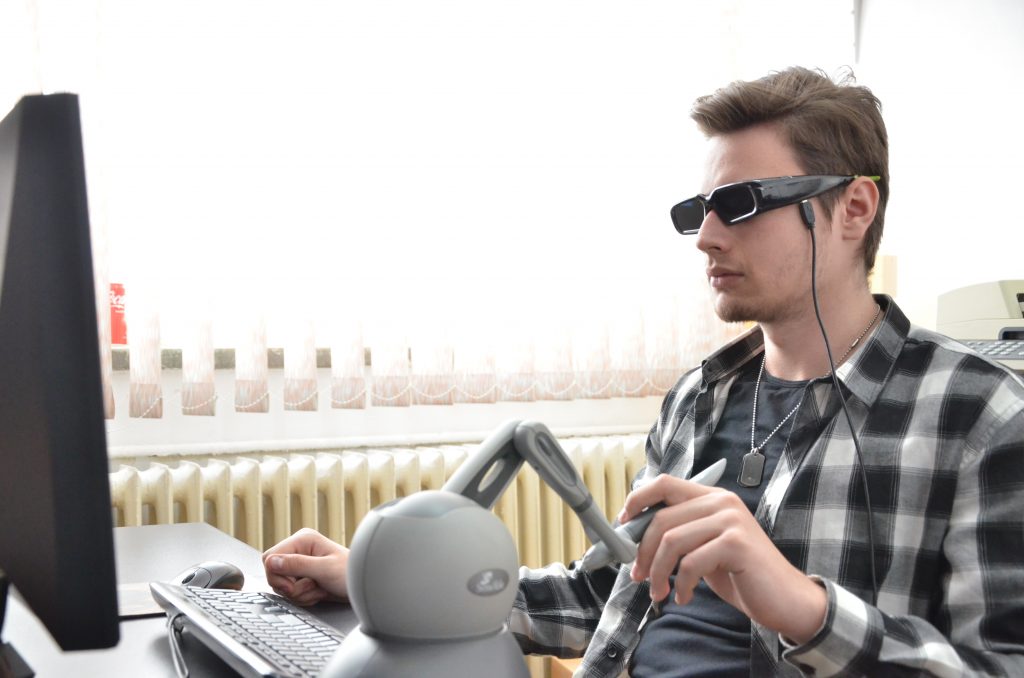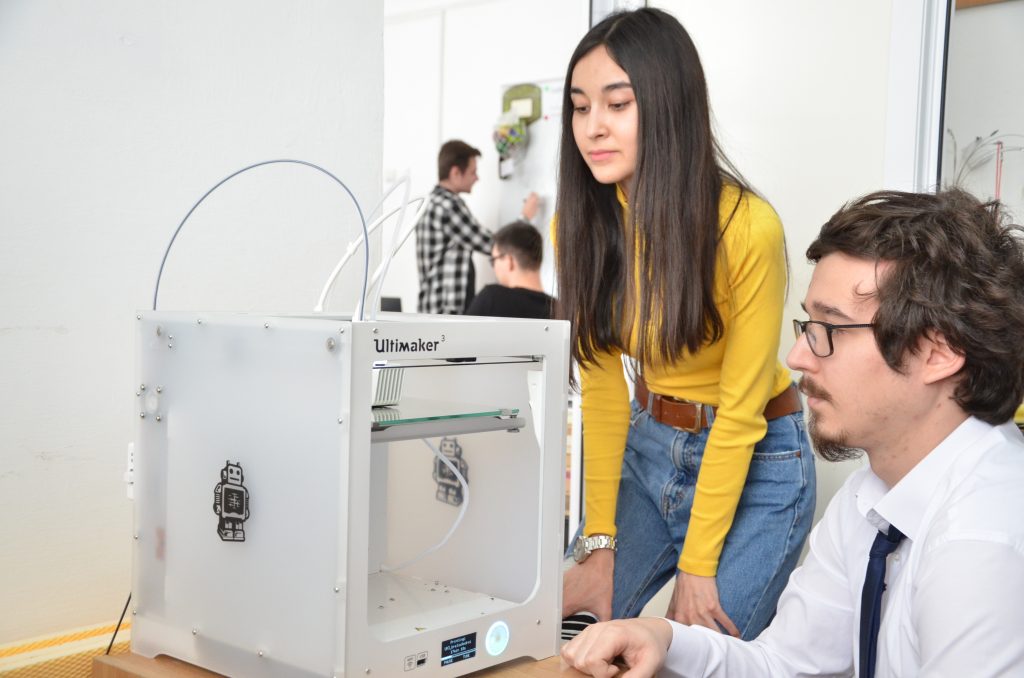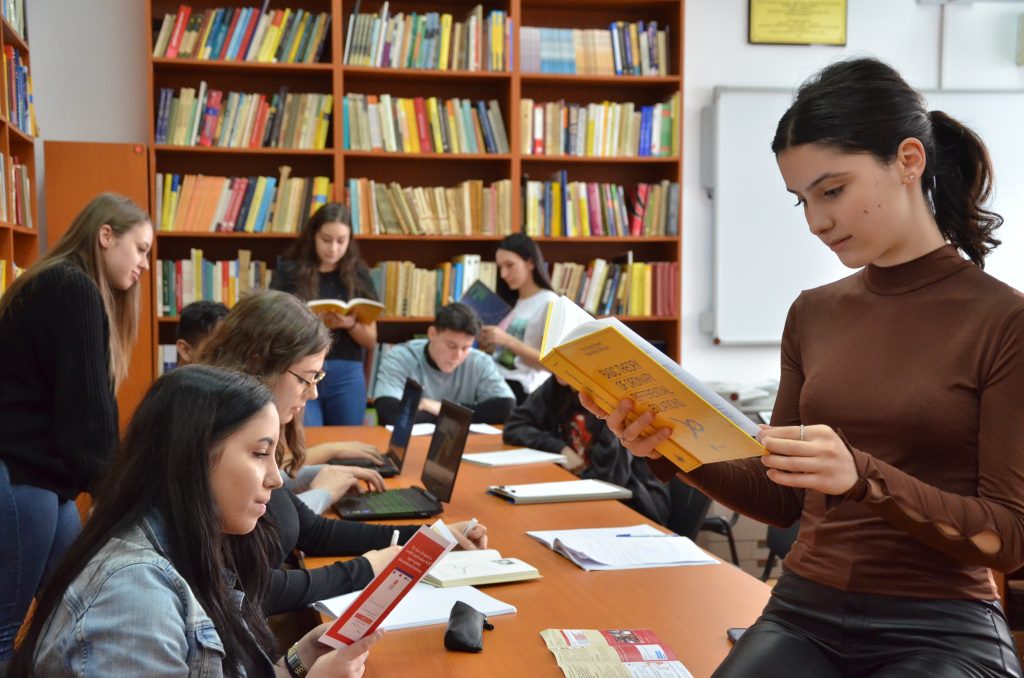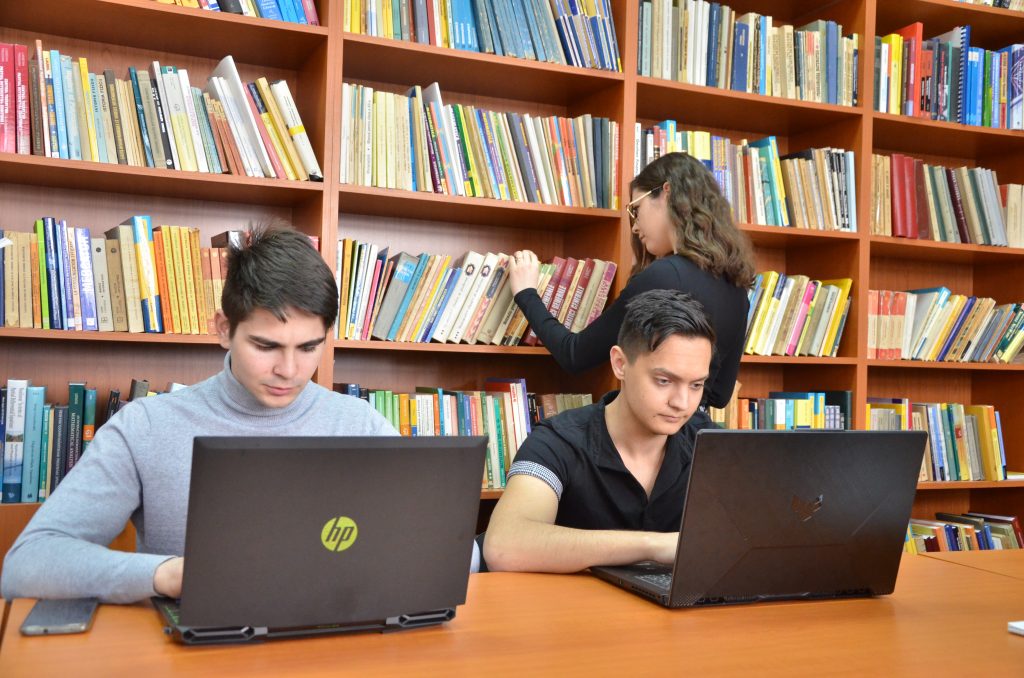The mission of the program
The study programme of Mathematical Informatics provides the necessary background for further study and scientific work in interdisciplinary fields involving mathematics and computer science. Graduates of Mathematical Informatics receive knowledge background sufficient for any master study programme in related mathematical, for studies in computer science and suitable also for their professional activity in education.
Graduates of Mathematical Informatics receive knowledge background sufficient to teach Mathematics, Informatics and Information Technology in in any state or private educational institution of gymnasial level (under the condition of graduating the pedagogical module), to apply their theoretical knowledge in solving practical problems, to design and implement computer systems.
The programme’s purpose is to prepares professionals with rigorous training in mathematics, a high qualification and a versatile profile, who will also be highly capable of addressing problems and finding solutions in the field of computer science. They will acquire the ability to design, implement and manage computer system projects and innovative intelligent systems.
The study plan of Mathematical Informatics places emphasis on mathematical disciplines and formal methods and on theoretical computer science subjects
Core courses (from the study plan): Algebra (I-III), Mathematical Analysis (I-III), Geometry (I-III), Differential Equations, Complex Analysis, Probabilities and statistics, Algorithms and Programming, Computer System Architecture, Operating Systems, Databases.
It's worth studying because:
This double degree responds to a growing demand from the world of science, technology and research, leading to a high employment rate.
Thanks to the double profile, it is possible to work in any of the two fields for which these degrees qualify students.
Programme gives wide mathematical knowledge and develops mathematical techniques using skills in the fields of IT, finance, engineering. Graduates can work at the science and education institutions, industry, agencies of information and social investigations, management institutions.
Bachelor program: Computer Science (in Romanian)
The bachelor program in Computer Science aims at training specialists in the fundamental areas of IT&C, with skills both in adapting and applying immediately the acquired knowledge to the labor market requirements, and at the continuous self-improvement of students through master programs and / or doctoral studies.
Mission
The bachelor program aims to create a detailed but flexible knowledge base (allowing the development of studies in the master's and / or doctoral cycle) which is required for highly trained IT specialists. This is achieved by blending theoretical knowledge with modern technologies and sequences of practical applications taking place on site or at partner IT companies (during the internship or practical stages). The curricula is built upon the Bologna Agreement for Higher Education, hence it is aligned with most bachelor programs for Computer Science in other EU countries, with students being able to benefit from Erasmus Plus scholarships. Erasmus Plus.
Last but not least, the aim is to strengthen the education of college students in innovation and entrepreneurship by involving them in research projects developed in partnerships with other universities from Romania or abroad and with companies.
General Objectives
•Connecting the bachelor study program to the education and research systems of the other universities from Romania and abroad.
• Aquiring the knowledge, the understanding and the use of fundamental concepts in the IT&C field, software engineering procedures and tools.
• Developing the skills to learn permanently, to understand and apply the recent scientific results in the field.
• Stimulating the ability to work independently as well as in a team to solve difficult problems.
• Development of a functional system of knowledge specific to the IT&C field in accordance with the structure of the contents involved in the curricula.
• Providing students with the appropriate skills in what concerns the development of cognitive, application-practical, communication and relational outcomes.
• Development of a system of attitudes corresponding to deontological norms and support of the aptitude profile.
Specific Objectives
Cognitive and application-practical objectives
•Deep knowledge of programming languages.
•Ability to design, develop and maintain information systems.
•Abilities to design and manage computer networks, database management systems.
•Ability to analyze, synthesize and model phenomena and processes in various fields (science, economics, etc.) using appropriate statistical, computational and computer methods.
•Ability to use new modeling, information and communication technologies.
•Openness to new and innovative trends in the field by systematically updating knowledge.
•Approaching a multi-, inter- and transdisciplinary approach by making connections between computer science disciplines and other fields.
•Focusing on the structural and procedural connections of the discipline.
| Compulsory courses | |
| Data Structures Fundamentals of Programming Computer Architectures Mathematical Analysis Linear Algebra |
Fundamental Algorithms Mathematical and Computational Logic Differential and Integral Calculus Analytic and Differential Geometry Specialization Practice |
| Compulsory courses | Optional courses |
| Graphs Algorithms Operating Systems Formal Languages and Compilers Object Oriented Programming I Computational Geometry Databases WEB Technologies Numerical Analysis Probability Theory and Elements of Mathematical Statistics Differential and Partial Differential Equations Specialization Practice |
Calculability and Computations Multimedia Techniques Visual Programming Environments Software Testing and Validation ETHICS AND ACADEMIC INTEGRITY |
| Compulsory courses | Optional courses |
| Advanced Programming Techniques Databases Management Systems Computer Networks Artificial Intelligence Optimization Techniques Computer Graphics |
Web application development Software Engineering Scientific Computing Algorithms (Pattern Recognition) Design and Programming Environments Modelling and Simulation |
Other activities
Student contests (ESTIC, Concurs Evonomix), scientific seminars for students (Cyberworks-student-laboratory), summer schools (http://creative.cerva.ro), conferences/workshops (https://creative.cerva.ro/workshop), research projects (http://cerva.ro, IDENEO), career fairs etc.
Programming languages and technologies
Programming Languages:C, Java, assembly, Prolog, C#, Python, R, OpenCV, MatLab, SQL, DCL and DD, HTML5, Javascript, XML, PL/SQL
Software modelling and design:UML, DEA, relational data modelling, software process models (RUP, Agile, etc), software system models, modeling AI problems, neural networks (Tensorflow with Keras API), statistical analysis models
TechnologiesSwing, CSS, RWD frameworks, Internet protocols, network services, security services and technologies, ADO.NET, ASP .Net Webforms, WebApi, AJAX, graphics technologies
Architectural patterns:MVC, web services, Client-Server, 3-tiers, MVVM, MVS, MVP
Design patterns : general design models (Creator, Low coupling, High Coesion, Expert, Pure Fabrication, etc), Singleton
SGBD: MS Access, Oracle SQL, MS SQL Server
Operating systems Windows , Unix
Algorithms fundamental algorithms, artificial / computational, pattern recognition, genetic algorithms etc
Search and sort methods search methods for AI problems, methods for solving optimization problems
Methods for developing algorithms
Miscellaneous: MS Office
Perspectives
The graduate of the Computer Science bachelor program has the qualifications of Analyst (COR 251201), Computer System Engineer (COR 251203), Computer System Programmer (COR 251204) and will work mainly in the IT industry (software development, computer / database network management data, web design, data analysis, security, IT consulting, artificial intelligence, fintech, gaming, etc.), but also in education (if graduating an additional psycho-pedagogical module), administration, banking system, etc.
Among the employers of our graduates we can mention, without being exhaustive, the following companies (in alphabetical order): AD-FIRE Youth Group SRL, AquaSOFT S.R.L, Banca Transilvania, S.C. BLUECODE IT CONSULTING & DEVELOPMENT S.R.L., CORNERSTONE TECHNOLOGIES S.R.L., Electronic Arts, F5 IT, IBM Romania, ING Bank, Inspectoratul Școlar Județean Constanța (si alte judete) ORANGE ROMANIA S.A., SENIOR SOFTWARE, SRI, TeamArt Outsourcing S.R.L., UBISOFT, VAUBAN – INETUM ROMÂNIA, XPLORERS SRL- LOGISCOOL.
Bachelor program: Computer Science (in English)
The bachelor program in Computer Science aims at training specialists in the fundamental areas of IT&C, with skills both in adapting and applying immediately the acquired knowledge to the labor market requirements, and at the continuous self-improvement of students through master programs and / or doctoral studies.
Mission
The bachelor program aims to create a detailed but flexible knowledge base (allowing the development of studies in the master's and / or doctoral cycle) which is required for highly trained IT specialists. This is achieved by blending theoretical knowledge with modern technologies and sequences of practical applications taking place on site or at partner IT companies (during the internship or practical stages). The curricula is built upon the Bologna Agreement for Higher Education, hence it is aligned with most bachelor programs for Computer Science in other EU countries, with students being able to benefit from Erasmus Plus scholarships. Erasmus Plus.
Last but not least, the aim is to strengthen the education of college students in innovation and entrepreneurship by involving them in research projects developed in partnerships with other universities from Romania or abroad and with companies.
General Objectives
•Connecting the bachelor study program to the education and research systems of the other universities from Romania and abroad.
• Aquiring the knowledge, the understanding and the use of fundamental concepts in the IT&C field, software engineering procedures and tools.
• Developing the skills to learn permanently, to understand and apply the recent scientific results in the field.
• Stimulating the ability to work independently as well as in a team to solve difficult problems.
• Development of a functional system of knowledge specific to the IT&C field in accordance with the structure of the contents involved in the curricula.
• Providing students with the appropriate skills in what concerns the development of cognitive, application-practical, communication and relational outcomes.
• Development of a system of attitudes corresponding to deontological norms and support of the aptitude profile.
Specific Objectives
Cognitive and application-practical objectives
•Deep knowledge of programming languages.
•Ability to design, develop and maintain information systems.
•Abilities to design and manage computer networks, database management systems.
•Ability to analyze, synthesize and model phenomena and processes in various fields (science, economics, etc.) using appropriate statistical, computational and computer methods.
•Ability to use new modeling, information and communication technologies.
•Openness to new and innovative trends in the field by systematically updating knowledge.
•Approaching a multi-, inter- and transdisciplinary approach by making connections between computer science disciplines and other fields.
•Focusing on the structural and procedural connections of the discipline.
| Compulsory courses | |
| Data Structures Fundamentals of Programming Computer Architectures Mathematical Analysis Linear Algebra |
Fundamental Algorithms Mathematical and Computational Logic Differential and Integral Calculus Analytic and Differential Geometry Specialization Practice |
| Compulsory courses | Optional courses |
| Graphs Algorithms Operating Systems Formal Languages and Compilers Object Oriented Programming I Computational Geometry Databases WEB Technologies Numerical Analysis Probability Theory and Elements of Mathematical Statistics Differential and Partial Differential Equations Specialization Practice |
Calculability and Computations Multimedia Techniques Visual Programming Environments Software Testing and Validation ETHICS AND ACADEMIC INTEGRITY |
| Compulsory courses | Optional courses |
| Advanced Programming Techniques Databases Management Systems Computer Networks Artificial Intelligence Optimization Techniques Computer Graphics |
Web application development Software Engineering Scientific Computing Algorithms (Pattern Recognition) Design and Programming Environments Modelling and Simulation |
Other activities
Student contests (ESTIC, Concurs Evonomix), scientific seminars for students (Cyberworks-student-laboratory), summer schools (http://creative.cerva.ro), conferences/workshops (https://creative.cerva.ro/workshop), research projects (http://cerva.ro, IDENEO), career fairs etc.
Programming languages and technologies
Programming Languages:C, Java, assembly, Prolog, C#, Python, R, OpenCV, MatLab, SQL, DCL and DD, HTML5, Javascript, XML, PL/SQL
Software modelling and design:UML, DEA, relational data modelling, software process models (RUP, Agile, etc), software system models, modeling AI problems, neural networks (Tensorflow with Keras API), statistical analysis models
TechnologiesSwing, CSS, RWD frameworks, Internet protocols, network services, security services and technologies, ADO.NET, ASP .Net Webforms, WebApi, AJAX, graphics technologies
Architectural patterns:MVC, web services, Client-Server, 3-tiers, MVVM, MVS, MVP
Design patterns : general design models (Creator, Low coupling, High Coesion, Expert, Pure Fabrication, etc), Singleton
SGBD: MS Access, Oracle SQL, MS SQL Server
Operating systems Windows , Unix
Algorithms fundamental algorithms, artificial / computational, pattern recognition, genetic algorithms etc
Search and sort methods search methods for AI problems, methods for solving optimization problems
Methods for developing algorithms
Miscellaneous: MS Office
Perspectives
The graduate of the Computer Science bachelor program has the qualifications of Analyst (COR 251201), Computer System Engineer (COR 251203), Computer System Programmer (COR 251204) and will work mainly in the IT industry (software development, computer / database network management data, web design, data analysis, security, IT consulting, artificial intelligence, fintech, gaming, etc.), but also in education (if graduating an additional psycho-pedagogical module), administration, banking system, etc.
Among the employers of our graduates we can mention, without being exhaustive, the following companies (in alphabetical order): AD-FIRE Youth Group SRL, AquaSOFT S.R.L, Banca Transilvania, S.C. BLUECODE IT CONSULTING & DEVELOPMENT S.R.L., CORNERSTONE TECHNOLOGIES S.R.L., Electronic Arts, F5 IT, IBM Romania, ING Bank, Inspectoratul Școlar Județean Constanța (si alte judete) ORANGE ROMANIA S.A., SENIOR SOFTWARE, SRI, TeamArt Outsourcing S.R.L., UBISOFT, VAUBAN – INETUM ROMÂNIA, XPLORERS SRL- LOGISCOOL.
